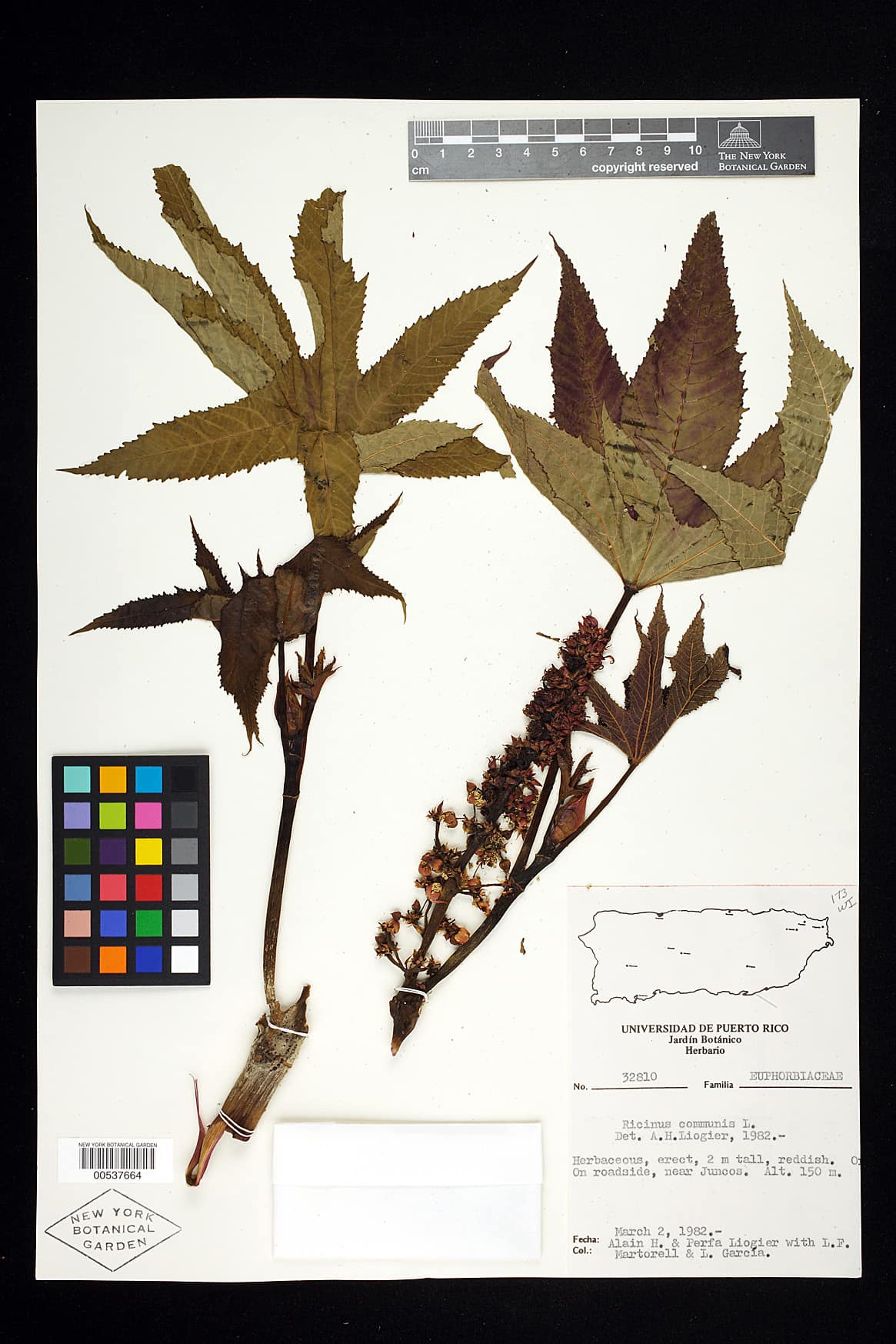
Ricinus communis (Euphorbiaceae)
Also known as Castor Oil Plant, Ricinus belongs to the spurge family native to tropical Africa but cultivated worldwide for commercial uses. The plant can reach up to 30 feet in tropical climates and bears giant palmate leaves that can grow over two feet across. The plant produces male flowers below the terminal female flowers. The fruits are spiny about the size of a golf ball that can be red, pink, or green, and eventually turn brown when ripe.
Several toxic compounds are found in the seeds of Ricinus and ricin occurs in highest concentration. Ricin is one of the most toxic naturally occurring substances. After getting inside of a person's body, ricin prevents ribosomal protein synthesis and eventually killing the cell. Castor oil can be extracted from castor seeds and has many medicinal benefits. It is used effectively in treating rheumatic, skin disorders, and constipation. Castor oil is also widely used in the industrial sector, some of the industrial uses include coloring and dyeing, and creation of natural rubber, soap, motor lubricants and insecticides.